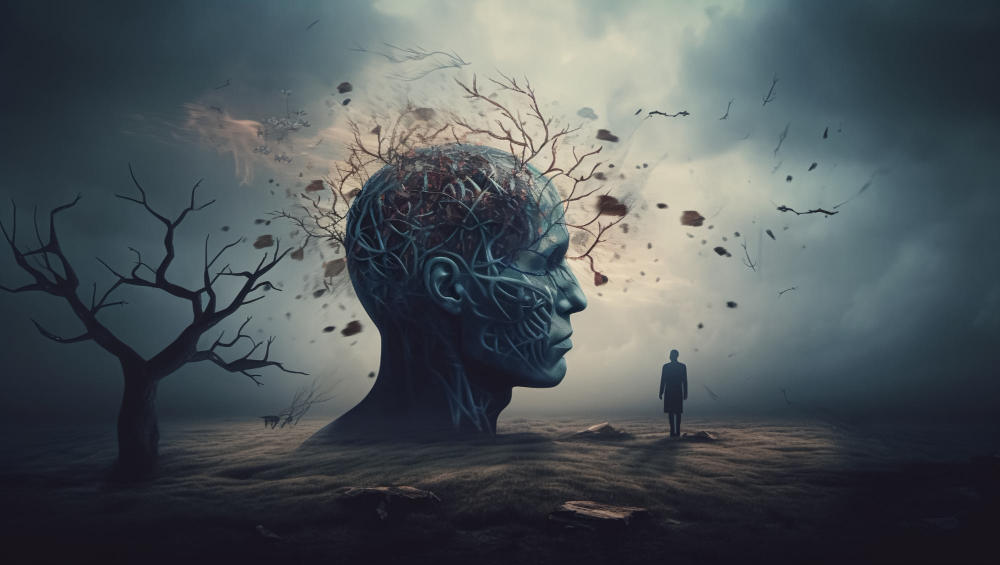Existential Depression: What Is It?
There are numerous varieties of depression, and it can be a hazardous illness. Even though existential depression is not officially recognized, understanding what it is might be a significant step toward validating the experiences of condition survivors. Please continue reading to find out more about existential depression, its causes, and coping mechanisms.
Existential Depression: What Is It?

An individual’s experience with depression may be distinct. While depressed individuals may exhibit a standard set of symptoms, they may also be sensitive to various triggers and condition-related issues at any particular time.
Numerous supportive measures can be employed to alleviate depression. First, many would find it helpful to recognize what they’re going through—which could be existential sadness.
Compared to other forms of depression, this one may have a stronger philosophical foundation, making it more challenging to treat. It can happen to those who are depressed and very unhappy about life in general and what it means to live.
Furthermore, dealing with existential sadness can be highly challenging if the sufferer believes that life has no purpose at all. Many may feel it is hard to muster the energy needed if life has no purpose.
In this situation, an existential crisis may be so severe that the person experiencing it would need emergency assistance. For those who want to treat depression brought on by existential stress and other issues, inpatient treatment and online counseling can be beneficial options.
They are also available to help you with medication management when you receive private treatment. It is best to consult a mental health professional before matters spiral out of control.
Recognizing Existential Depression and Coping Strategies
As previously indicated, an existential crisis or melancholy feelings related to existentialism may concern the purpose of existence itself. It also touches on faith, interpersonal ties, and much more.
Big questions are usually challenging to answer decisively or quickly, such as why the cosmos exists and the purpose of existence. It can be crucial to make an effort to center yourself if you are experiencing depression due to some of life’s more profound questions.
Existential Depression: What Causes It?
This kind of depression may have a personal reason. Life changes can occasionally bring it on. For instance, You might think about death more carefully than you used to after losing a loved one.
Chronic stress, overwork, and overwhelm can all be contributing factors to this type of depression. For many people suffering from the consequences of existential depression, online therapy and other forms of support can be beneficial.
What is the Treatment for Existential Depression?
Similar to other forms of depression, existential depression can be treated with similar methods. For those experiencing severe depression, medication may occasionally be administered. People use therapy sessions on other occasions to help them feel more at ease. Most of the time, a mix of therapies works well.
It can be helpful to discuss existential depression with someone if you’re feeling it. Keeping your worries and emotions inside will frequently result in more profound sadness. This may hurt your life and occasionally result in isolation and retreat. If you get the proper assistance, you can prevent yourself from sinking into a profound state of depression due to existential concerns.
A particular kind of sadness known as existential depression stems from existential and philosophical questions about life, purpose, and identity. In contrast to more widespread types of depression, existential depression frequently entails a profound sense of introspection and inquiry about the most essential elements of life.
Those who suffer from existential depression frequently struggle with complex philosophical issues regarding the nature of existence, the meaning of life, and their place in it. A feeling of emptiness or hopelessness may result from this reflective process.
To satisfy the clinical criteria for a manic episode, symptoms must be present almost every day for at least a week, lasting the bulk of the day. Hypomanic episodes might not extend past four days.
A greater awareness of one’s death and the transience of existence is frequently associated with existential despair. Reflections on the fleeting nature of life and the certainty of death can exacerbate sadness and anxiety.
Conclusion
Seeking the assistance of a mental health professional, especially one who is acquainted with existential or humanistic approaches, might be helpful if someone is feeling existential depression or is having difficulties answering concerns about the meaning of life. A safe environment for investigation, introspection, and the creation of coping mechanisms can be found in therapy.

















